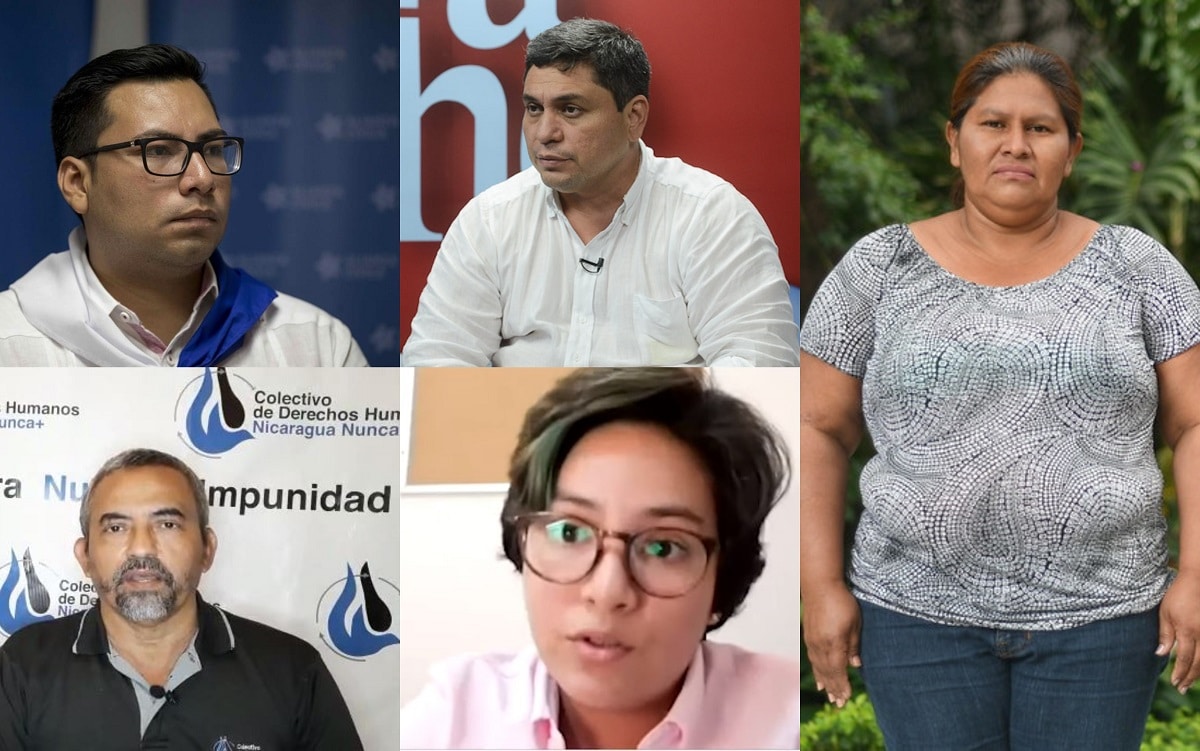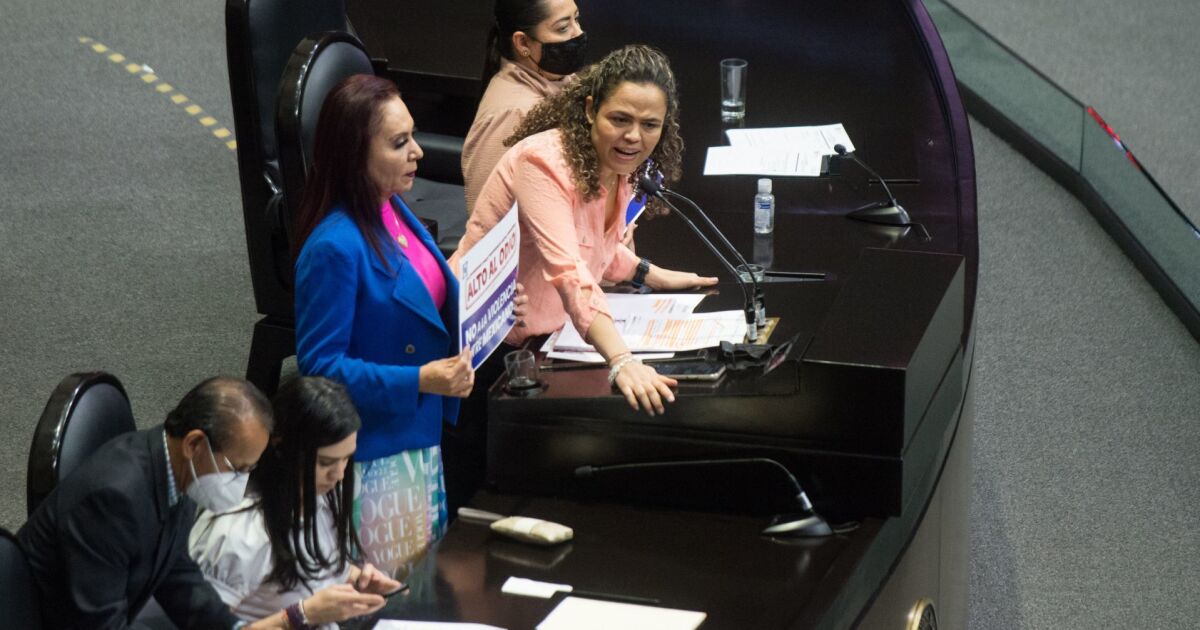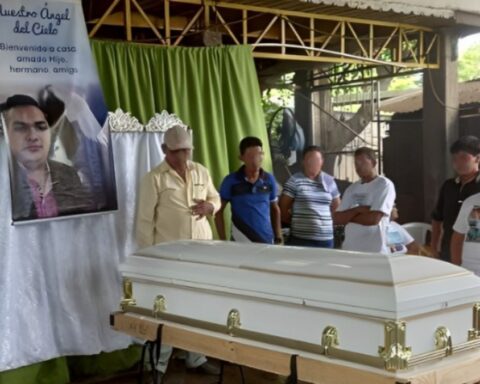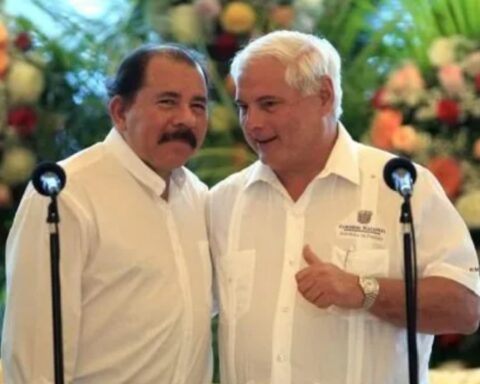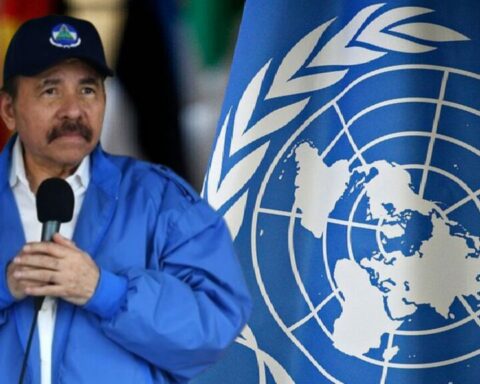Four years after the outbreak of the April Rebellion, the Nicaraguan people’s desire for freedom is still valid, and even more so, to the extent that the dictatorship increases repression, and the number of political prisoners growsthe exiles and the unemployed, according to the opinion of five opponents in exile, consulted by Esta Noche.
Gonzalo Carrión, president of the Nicaraguan Never Again Human Rights Collective, when he points out that, although he and his Nicaraguan colleagues who make up this organization have already been in exile for three years, “confidence remains, the conviction that Nicaragua will see that great and desired moment”, in reference to the end of the dictatorship.
The lawyer admits that this does not seem to be true at this time, because “a state of brutal, ferocious terror has been imposed, which worsens every day, but it is also a demonstration of the weakness of a family that intends to impose itself with force, of the rifles, because that is all they have. They have nothing to offer!”
María Laura Alvarado, a member of the Political Council of the Blue and White National Unity, has “many expectations of change, especially because Ortega and Murillo are not forever. They may be in power for a few more years, but they are not forever, ”she insisted.
Faced with this scenario, he calls on the new generations to be prepared for the changes that the country will require, “whether whoever comes from the opposition to power” while considering that there must be a strong opposition force and, above all, “build a vision of the country, that allows us to rebuild and refound it, because Ortega and Murillo are going to leave it in ruins the day we manage to get them out.”
Yubrank Suazo takes up the campaign that says ‘April is Hope’, pointing out that “the hope of 2018 continues to live in the feelings of all Nicaraguans, and in a very particular way in the feelings of public employees who cannot raise their voice; who attend their workplaces because there is a commitment, an obligation, a duty, to bring their daily bread to their children’s tables”.
Many reasons for a blast
Former liberal deputy Eliseo Núñez does not believe that the spirit of April has faded, although four years have passed since the Citizen Rebellion. “The thing is, that was a momentumand it could not be taken advantage of due to a series of factors, but the reasons why April happened are there”, he points out.
Among these reasons, he mentions that people continue to be subjugated, without the right to express their opinion, suffer the consequences of corruption, and “although the economy continues to grow -according to the Government- that is not seen in the streets: people are still unemployed, just like before 2018, when the economy was growing, but the wealth was in the hands of those who were around the Government, and those whom the Government had decided to favor, while the population lived in poverty”.
“The collapse of April is due to the fact that the Government was unable, in all the years since 2007, to ensure that people could have better jobs, better salaries. Nicaragua’s great competitive advantage continued to be, as of April 2018, having the cheapest labor force in the hemisphere,” he questioned.
Doña Francisca Ramírez identifies with the peasants who, as she herself points out, already they were mobilized for five years before that the April Rebellion broke out, in defense of their land ownershipthreatened by Law 840.
“We peasants have been demanding change since 2013. Today we are clear that we are the people, that we have to fight to achieve that change. We have to retake the internal organization of the territory, establish resistance actions that are not only in social networks, but in actions”, he graphed.
The task belongs to everyone, according to Yubrank Suazo, which includes those who are still inside the country “and persist with their resistance”, such as those who are in exile, organized, “trying to unify in action… in a very particular way, those who are in Costa Rica and the United States”, he defined.
Thinking of Nicaraguans who are still in the country, María Laura Alvarado, from UNAB, recommends that citizens show their apathy towards the regime; to show what is wrong within the system, because “the regime violates all kinds of institutional norms within the State, so it is important that citizens can continue denouncing these irregularities.”
He explained that as an opposition organization, the UNAB is trying to articulate forces, because it understands that fighting the dictatorship is not something that it can do on its own, so they are trying to articulate the other opposition forces, through processes of political dialogue, strengthening the rapprochement with the Nicaraguan diaspora settled in the United States and Europe.
Did the April Rebellion fail?
Despite seeing more than 300 citizens die, and while Ortega and Murillo continue screwed in power, Núñez, Alvarado and Ramírez, do not agree with the use of the epithet ‘failure’ to refer to the cry for freedom that broke out in April 2018.
The peasant leader assures that “the April Rebellion and the demands for change have not failed. Those who failed were those who at that time represented the dialogue. The rebellion was clear about its demands. The one who did not have them clear was the big capital, because they never wanted to sacrifice the economic. Forever privileged economic interests, not demands for change. The people will achieve that change”, he sentenced.
Alvarado, from UNAB, asserts that “the demands and the April Rebellion reached the ears of the international community, and there were results at that time, however, they were not the results that the citizens expected, which was to be able to remove Ortega. That was not achieved, but there are certain achievements that should be recognized. It’s not a complete defeat.”
Núñez explains that “these are long processes”, especially since it is a non-violent struggle in which “normally the objective is not achieved at the first attempt, because it is easier to get angry than to organize”, and in this model of struggle there is a lot of anger, a lot of reaction to what the dictatorial regimes do, but little organization capacity.
Four years later, what is seen is “a civil society merged with political entities, merged in interests with parallel organizations, another series of expressions. There are exponentially more anti-regime organizations today than there were in April 2018,” he calculated.
In April 2018, Nicaraguan citizens rose up in protest against the Unilateral reforms to the Pension Lawalso demanding justice and democracy, a claim that led to a ‘dialogue‘, which was nothing more than a ruse to buy time while vigilante forces loyal to the ruling family, they dismantled the protest with blood and fire.
According to evidence collected by the Inter-American Commission on Human Rights (IACHR), the result of that violence was the murder of -at least- 355 peopleand although an omnipresent dictatorship seems to justify the conclusion that their deaths were in vain, the sources warn of a certain fact: this story is not over.
___________________________________________________________________________________
A video version will be broadcast this Wednesday the 20th on the Esta Noche program on the CONFIDENTIAL YouTube.

